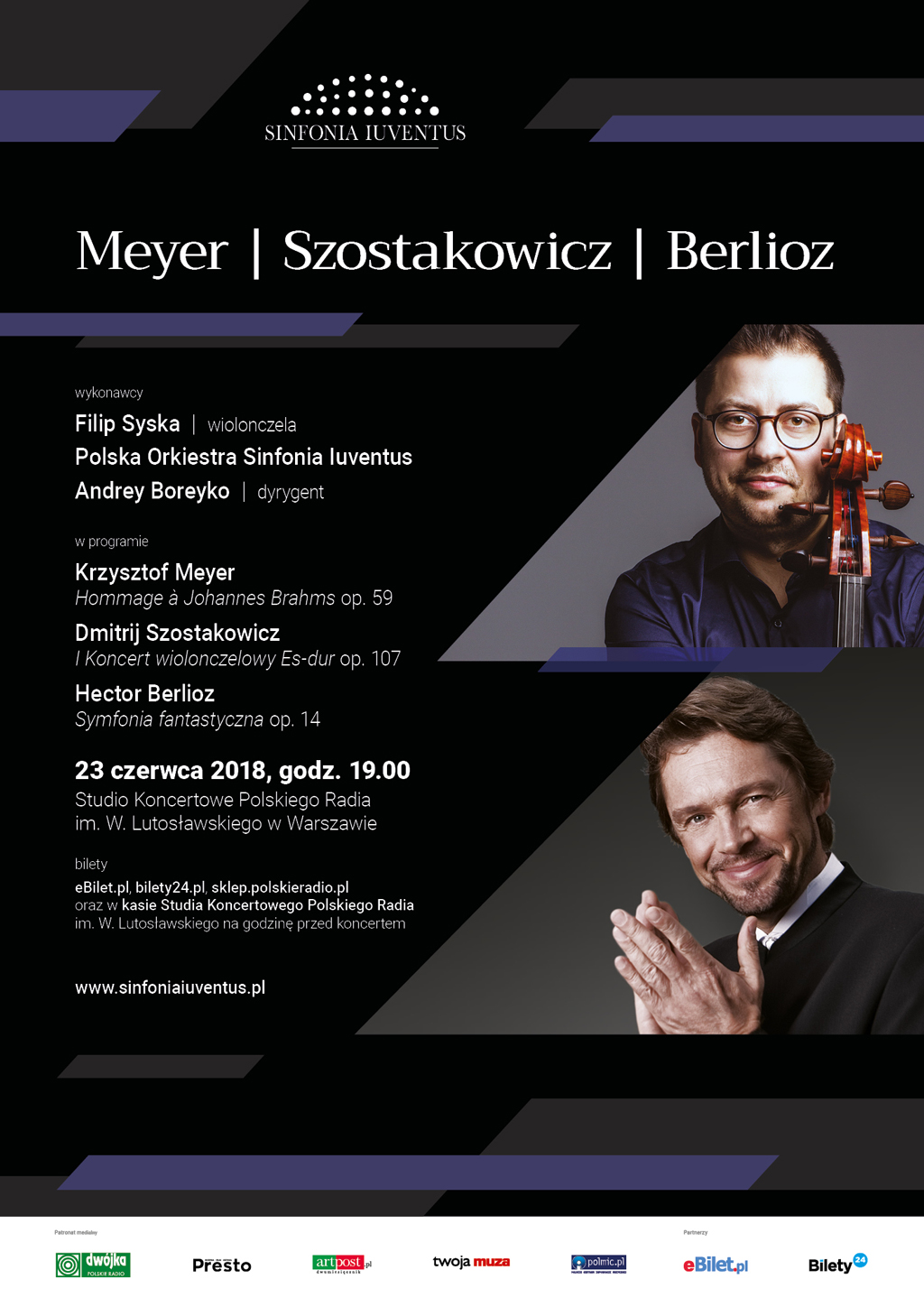Meyer | Shostakovich | Berlioz
23 June 2018, 7.00 p.m.
W. Lutosławski Concert Studio of the Polish Radio
K. Kaczmarski 59

Hector Berlioz is regarded as the precursor and main representative of the romantic trend of programme music, the idea of which was to combine musical narration with non-musical literary content, a specific idea or artistic vision. The flagship example of this idea is the Symphonie fantastique, which evocatively presents an “episode from the artist’s life” with its sounds: the hero is enchanted by an extremely beautiful lady, and the obsessive thought about her (the famous musical idée fixe, appearing in various variants during the symphony) returns to him when he participates in a ball, admires the beauty of nature, and finally – as a nightmare during which he murders his beloved, goes to the scaffold, and after his death participates in a witches’ sabbath. This brilliant work is indeed the first and very characteristic manifesto of the new, thoroughly romantic genre, although it is worth remembering that programme elements in symphonic music were already present earlier, for example in overtures or orchestral interludes to operas or dramas.
Sometimes non-musical references are determined by a quotation from another composer’s work, or by the use of a “code”, in which the alphabetic (or solmisated) names of the notes are arranged into a specific word. This is what Krzysztof Meyer’s composition is like, and the author himself explained it in his commentary: “Johannes Brahms’ music is particularly close to my heart, so it was a great joy for me when Heribert Beissel asked me to compose a piece for a symphony orchestra to mark the 150th anniversary of Brahms’ birth. […] The initial episode refers to the introduction of Brahms” Symphony No. 1, not only in its motifs and rhythm, but also in its instrumentation. The second reference to the German composer is a recurring motif built on the notes of B-Re-A-H-Mi-Es. The score, completed in 1982, is a continuation of some of my earlier works, especially Symphony No. 6.”
Shostakovich’s Cello Concerto No. 1 in E minor was one of over a hundred (!) works dedicated to the charismatic master of this instrument, Mstislav Rostropovich, and his first performances. These works, created by the greatest composers of the 20th century, form a wonderful anthology of contemporary literature for this instrument. In his concert, Shostakovich particularly emphasizes the cantilena capabilities of the cello, which are used in Rostropovich’s performance in an unparalleled way. The work will be performed by Filip Syska, a renowned soloist and chamber musician, a graduate of the Andrzej Bauer and Bartosz Koziak classes at the Feliks Nowowiejski Academy of Music in Bydgoszcz. He was also a musician of the Polish Sinfonia Iuventus Orchestra. Behind the conductor’s pulpit is Andrzej Boreyko, a bandleader of great international renown, who was the music director of the Düsseldorfer Symphoniker for many years, the Orchestre National de Belgique and Naples Philharmonic in Florida. He also often spends time in Poland, where, as the son of a Pole and a Russian woman, he spent his childhood.
Performers:
Filip Syska | cellist
Polish Sinfonia Iuventus Orchestra
Andrzej Boreyko | conductor
Programme:
Krzysztof Meyer | Hommage à Johannes Brahms, op. 59
Dmitri Shostakovich | Cello Concerto No. 1 in E-flat major, op. 107
Hector Berlioz | Symphonie Fantastique, op.14.
We invite you!
Media patronage: Polskie Radio Program 2, Presto, Art Post, Twoja Muza, polmic.pl
Tickets available at bilety24, eBilet and sklep.polskieradio.pl, as well as in the box office of W. Lutosławski Concert Studio of Polish Radio one hour before the concert.
